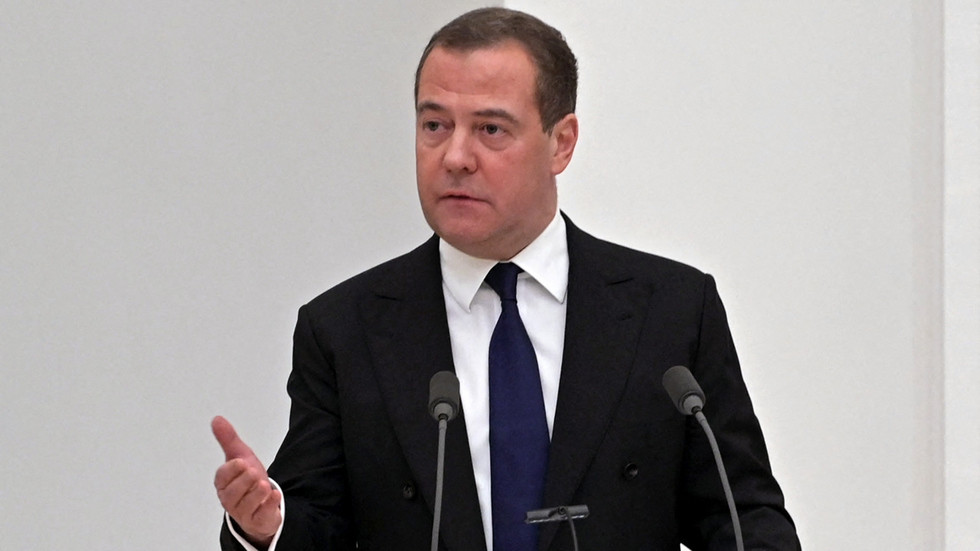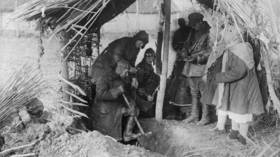
Berlin should repent for Nazi crimes instead of passing resolutions on a Soviet-era famine, Dmitry Medvedev said

Deputy chairman of the Russian Security Council Dmitry Medvedev speaks during a meeting with members of the Security Council in Moscow on February 21, 2022. © Alexey NIKOLSKY / Sputnik / AFP
Germany has no right to lecture Russia on humanism and the 1930s famine in the USSR, given the atrocities that Nazi troops committed on Soviet soil during WWII, former Russian President Dmitry Medvedev said on Thursday.
The German parliament on Wednesday designated the Stalin-era wave of mass hunger – which Kiev calls the “Holodomor” – as genocide. Speaking at the office of the ruling United Russia party, which he chairs, Medvedev unleashed a scathing rebuke of German lawmakers.
“Germans are now teaching us about humanism. Let them remember their own history, what they did on our nation’s territory,” he said, referring to the mass atrocities committed by Nazi troops between 1941 and 1945 on Soviet territory.
“They are telling us about the ‘Holodomor’, about something else. It’s a shame to listen to all this coming from the lips of high-ranking officials, they should repent for three generations to come,” he stated.
On Wednesday, the German parliament adopted a resolution declaring that the 1930s Soviet famine a “genocide” against the Ukrainian people. However, as the Russian Foreign Ministry pointed out, the document ignored the fact that a “terrible famine was running rampant not only in Ukraine, but across the entire nation, claiming millions of lives.”

In a statement on Thursday, the ministry denounced Berlin’s move as “provocative.”
“This is another attempt to justify and spur the Western-inspired and sponsored campaign to demonize Russia in Ukraine,” as well as to pit ethnic Ukrainians against Russians and other peoples of former Soviet republics, it said.
The famine that struck the Soviet Union in the early 1930s was caused by severe drought and forced collectivization of agriculture under Joseph Stalin. According to various estimates, it killed up to eight million people in Ukraine, Belarus, Kazakhstan and Russia.
The total Soviet losses during WWII are estimated at about 27 million. Around 18 million of them were civilians who were killed, died of hunger, or succumbed to other factors due to unprecedented extermination policies adopted by the Nazi Germany on the occupied territories.




